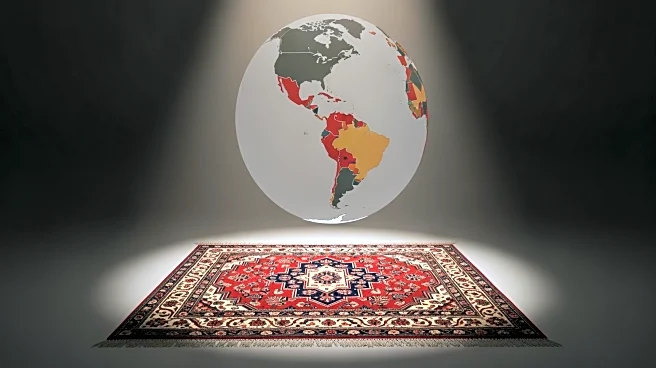What's Happening?
Ali Akbar Velayati, an adviser to Iranian Supreme Leader Ayatollah Ali Khamenei, has criticized the United States for its continued influence in Latin America, describing it as a 'backyard' policy reminiscent
of the Monroe era. Velayati stated that the U.S. is facing a legitimacy crisis not only in the Middle East but also in Latin America and East Asia. This statement comes amid heightened tensions between Iran and the U.S., particularly concerning military activities near Venezuela. The U.S. has increased its counter-narcotics operations in the southern Caribbean, which Iran views as a guise for regime-change intentions. Velayati emphasized Iran's role in a multipolar world order, alongside China and Russia, challenging U.S. unilateralism.
Why It's Important?
The remarks by Velayati highlight the ongoing geopolitical tensions between Iran and the United States. Iran's positioning as part of a multipolar order, along with China and Russia, signifies a shift in global power dynamics, challenging U.S. dominance. This could lead to increased collaboration among Eastern powers, potentially affecting U.S. foreign policy and its influence in regions like Latin America. The situation also underscores the complexities of U.S.-Iran relations, particularly in light of military activities and sanctions. The outcome of these tensions could impact global economic and political stability, with potential repercussions for international alliances and trade.
What's Next?
Iran is likely to continue strengthening its alliances with Russia, China, and regional partners to counter U.S. influence. This may involve increased economic and political cooperation, as well as strategic military partnerships. The U.S. may respond by reinforcing its presence in regions like Latin America and the Middle East, potentially escalating tensions further. Diplomatic efforts to resolve these issues could be pursued, but the likelihood of significant changes in the near term remains uncertain.
Beyond the Headlines
The broader implications of Iran's stance against U.S. influence could lead to shifts in international relations, with countries reassessing their alliances and foreign policies. The emergence of a multipolar world order may challenge existing power structures, prompting discussions on global governance and cooperation. Additionally, the focus on military activities and sanctions highlights the ethical and legal dimensions of international diplomacy, raising questions about sovereignty and intervention.











